Moscow has revealed for the first time that a key part of the original Black Sea Grain Initiative was never implemented.
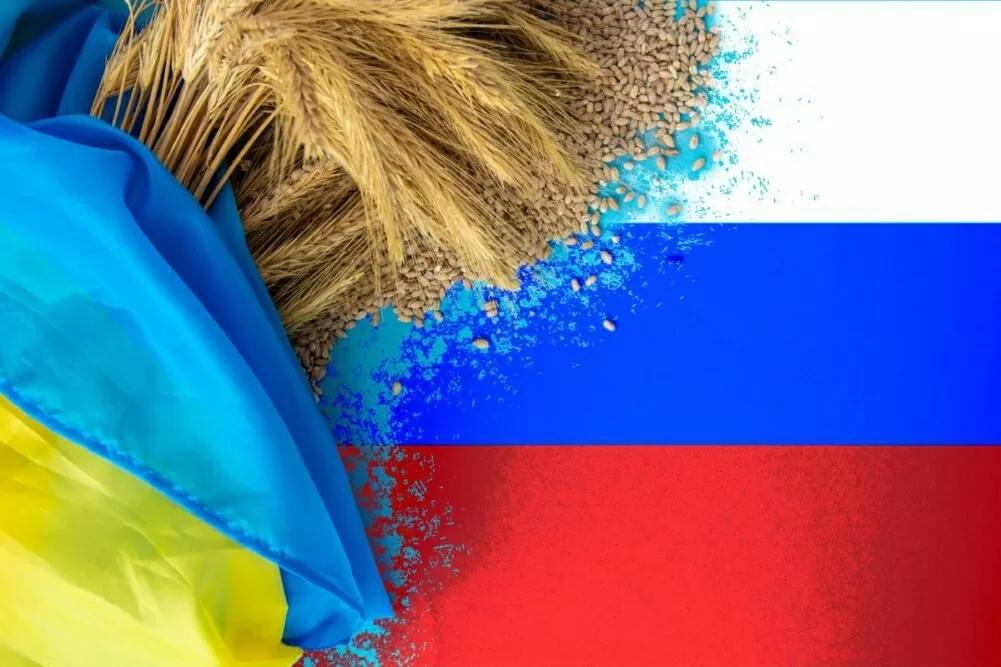 |
| Russia reveals for the first time the reason for withdrawing from the Black Sea Grain Initiative, now wants to negotiate its restoration? (Source: world-grain.com) |
The Black Sea Grain Initiative or Grain Agreement was first established between Russia and Ukraine in July 2022 with Turkey as the mediator and the United Nations through negotiations. The agreement was signed after a five-month blockade of grain exports from Ukrainian ports, which lasted until the summer of 2023, after Russia officially withdrew on the grounds that a significant part of the Initiative had never been implemented.
A diplomatic breakthrough
The first goal of the Initiative is to ensure that Ukraine, one of the world's leading grain producers, can continue to export grain from its southern ports, across the Bosphorus Strait, amid the ongoing military conflict with Russia.
In fact, the land routes through Poland and the waterways through Romania alone could not handle the required export volumes, making the agreement essential to global food supplies.
The Black Sea Grain Initiative was one of the few diplomatic breakthroughs since the Russia-Ukraine conflict erupted in February 2022, allowing the export of commercial food products and fertilizers, including ammonia, from Ukraine's three main ports: Odesa, Chornomorsk and Pivdennyi (formerly Yuzhny).
Ukrainian ships escorted the cargo ships through safe corridors, avoiding minefields, before heading to Istanbul, where they were inspected by joint patrols made up of Russian, Turkish, Ukrainian and United Nations officials.
A second agreement was signed alongside this one, aimed at easing restrictions on Russian food and fertilizer exports. Both parts of the agreement are subject to review every few months.
Is the Black Sea Grain Initiative working? The fact is, despite tensions and mistrust, some 33 million tons of grain have been exported from Ukrainian ports.
UK figures show that 61% of this goes to low- and middle-income countries, with 65% of wheat exports going to those countries.
The World Food Programme alone has purchased around 750,000 tonnes to send to countries such as Somalia, Ethiopia, Sudan and Afghanistan. Reports suggest that this increased supply has helped global grain prices fall significantly from a high of $1,360 per tonne to around $800 and have since stabilized.
However, according to Russia's statement, less than 4% of the grain reached the poorest countries. But many experts argue that even when exporting grain to richer countries, the grain deal has helped reduce food prices around the world.
Russia unilaterally broke the agreement ?
Russia began showing signs of gradually withdrawing from the Grain Agreement in October 2022. By April 2023, food exports under the Initiative had fallen by 29% compared to March, and by another 66% in May. Eventually, Russia withdrew from the agreement altogether, so the Initiative was essentially considered to have collapsed.
According to Moscow, the main reason behind the move is that the second part of the agreement - aimed at easing Russian agricultural exports - has not been implemented.
Russia said in its withdrawal from the Black Sea Grains Initiative that Moscow's food and fertilizer exports had faced serious obstacles. Although those goods are not subject to Western sanctions and continue to be exported, because the sanctions on its exports have not been explicitly lifted, payment, logistics and insurance restrictions have become barriers to shipments, Reuters reported.
Why does Russia want to restore the deal?
Moscow’s renewed interest in the deal appears to stem from economic and strategic considerations, analysts say. While Russia continues to export its agricultural products, it is also seeking clearer assurances that Western sanctions on Russian food and fertilizer exports will be eased.
Moscow also demanded the lifting of sanctions on its agricultural bank, the resumption of key trade routes and the unfreezing of assets linked to food exports.
Additionally, with Ukraine exploring alternative export routes through Poland, Romania and other channels, Russia may see the revived Black Sea deal as a way to regain leverage over the Ukrainian economy and influence broader ceasefire negotiations.
In an update, Kremlin spokesman Dmitry Peskov told reporters on March 24 that, in addition to talks in Riyadh, Saudi Arabia on a possible ceasefire in Ukraine, the focus of Russian-US discussions was on relaunching an important agreement to protect commercial shipping in the Black Sea.
“This is primarily about maritime safety, but if you remember the initiative in its previous form, there were a lot of obligations to our country that were not fulfilled last time,” Kremlin spokesman Dmitry Peskov said. “Therefore, the provisions of the Agreement are on the agenda this time.”
The Kremlin spokesman added that the US and Russian delegations in Riyadh are discussing the "Black Sea Initiative and all aspects related to its resumption." It was President Trump's proposal and President Putin agreed. "It was for this task that our delegation came to Riyadh," Peskov added.
Source: https://baoquocte.vn/nga-lan-dau-tiet-lo-ly-do-rut-khoi-sang-kien-ngu-coc-bien-den-nay-lai-muon-dam-phan-khoi-phuc-308729.html





![[Photo] Ho Chi Minh City: Many people release flower lanterns to celebrate Buddha's Birthday](https://vphoto.vietnam.vn/thumb/1200x675/vietnam/resource/IMAGE/2025/5/10/5d57dc648c0f46ffa3b22a3e6e3eac3e)



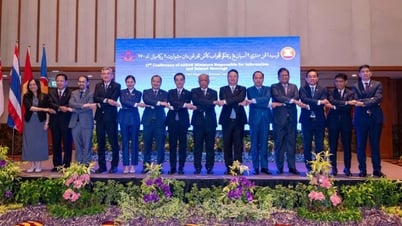

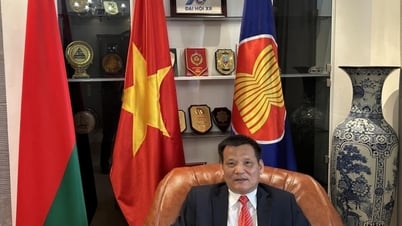
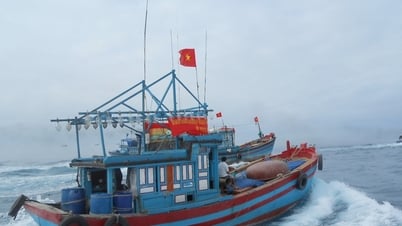











![[Photo] General Secretary To Lam meets with Chairman of the Federation Council, Parliament of the Russian Federation](https://vphoto.vietnam.vn/thumb/1200x675/vietnam/resource/IMAGE/2025/5/10/2c37f1980bdc48c4a04ca24b5f544b33)











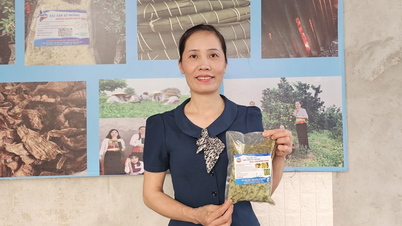



















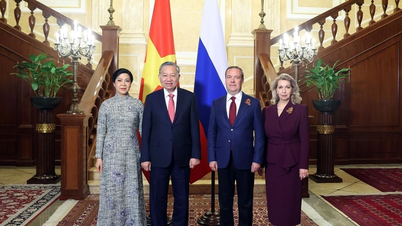

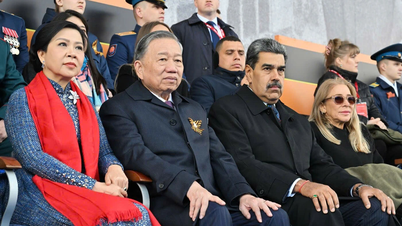





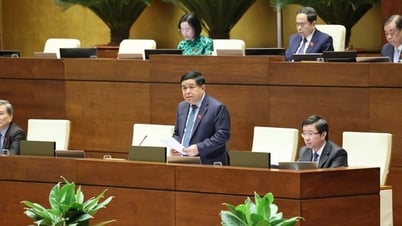

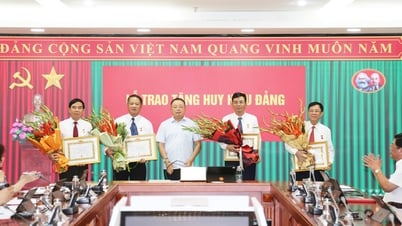

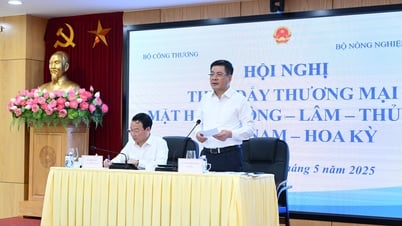






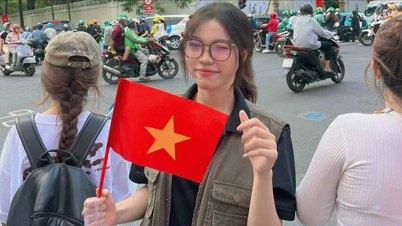














Comment (0)